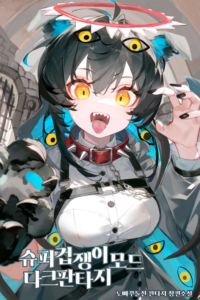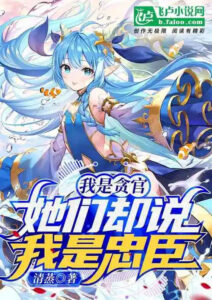Chapter: 84
Translation is a pretty grueling job. It’s completely different from just having a bilingual person read a foreign edition in its original language.
The arbitrary nature of language doesn’t allow us to translate the sentence “ABCD” to “가나다라” in a consistent way. The context in which a word is used, the historical situation, the expressions commonly used by the author, the translation guidelines from publishers, phrases used in previous domestic papers about the work, foreign notation methods, and idiomatic expressions—everything intertwines to create a sentence.
Within a highly complex context, the same sentence could be translated completely differently.
– “Are you okay?”
– “Huh?”
– “You look especially… insane today.”
– “You need to mind your manners.”
– “No, the expression on your face is really weird!”
– “What’s weird about it?”
– “Well, how should I say this? It’s just….”
And.
Despite all that tiredness.
– “You look like you’re on drugs…?”
– “Ugh, the translator really can’t speak properly….”
The Old Man and the Sea was actually one of the most fun novels to translate. Hemingway’s unique and powerful writing felt like a jigsaw puzzle to a translator. A puzzle where the negative and positive ends, male and female threads, fit together perfectly.
(In fact, most novels from former journalists usually feel like that.)
Perhaps I wasn’t the only one who felt this way. In my previous life, the copyright for “Hemingway” was released at the end of 2011 in South Korea, which led to 2012 being dubbed the year of Hemingway, with many of his works published.
The Old Man and the Sea is known as one of Hemingway’s most verbose works—it’s often criticized for being “talky,” but that actually made it a bit more fun to translate. It’s not so different from someone who is used to regular puzzles feeling even more intellectual satisfaction from blank puzzles, 3D puzzles, or irregular puzzles.
So, my junior’s description of me as “looking like you’re on drugs” turned out to be quite accurate.
– “Then what do you say?”
– “You know, like someone in love, or something nice like that.”
– “Just looking at your expression might make anyone fall out of love with you…?”
– “I guess I should work on not letting that happen.”
– “…Phew. You should! We’re dating now, after all. Whoa, I can hardly believe it….”
Well, anyway.
So I went ahead and translated this novel.
A perfect example of what literature should aim for, as shown by Hemingway’s work.
And thus, The Old Man and the Sea was published in the Empire.
[“Ah,”]
[he said loudly. There’s no direct translation for this word, and perhaps, it’s just the sound someone makes when feeling a nail go through their hand and into the wood, instinctively.]
.
.
.
If I had to summarize the plot of The Old Man and the Sea in just one word, it would be “saga.”
After eighty days and four nights without catching a single fish, the old man finally hooks a gigantic marlin, as if to reward him for his patience. However, this marlin, as massive as a shark, tugs at the boat for three days, and in the end, after quite a tussle, the old man manages to harpoon the marlin and successfully catch it.
But then, after spear-ing the marlin, the sharks start coming for its flesh, today’s lunch special. The old man surprisingly manages to kill one of the sharks, but the ocean is vast, and there are plenty of sharks to replace it.
Eventually, the marlin ends up being stripped to the bone by the sharks, and the old man returns home with nothing but the bones in tow.
And then, he falls into a deep sleep—that’s the plot of The Old Man and the Sea.
In fact, just reading the summary, you have no clue what kind of novel it is. But when you actually read it—
“This is way too interesting…?”
“Is it?”
“Yes! Transformation had a bit of an experimental vibe, but this novel is simply the most enjoyable one I’ve read so far!”
“Glad to hear that.”
You instantly get hooked on the story of the old fisherman.
Hemingway had this innate talent for grabbing the reader’s attention. The various symbols used in The Old Man and the Sea—Santiago and the fisherman, stars and the sea, determination and endurance—all hold very intuitive and familiar “biblical” connotations.
In his descriptions, Hemingway used concrete, easy-to-understand words.
If a specialized term was needed, he’d follow it up immediately with an explanation. Even those explanations felt natural and were quite poetic and narrative in style.
[“He always thought of the sea as ‘la mar.’ It’s the name that people use in Spanish when they love the sea. People who love the sea might sometimes say bad stuff about it, but they always picture the sea as feminine.”]
For this reason, the moment The Old Man and the Sea hit the shelves, it flew off to a massive audience and received enormous applause.
Fan letters to Homer flooded into the publisher.
Some folks didn’t hesitate to call The Old Man and the Sea as great as Don Quixote.
“The Old Man and the Sea is a masterpiece that tackles themes worthy of Homer! The human hymn within this story—the perseverance and will of Santiago—serves as a form of redemption connecting the sparkling ideals of Don Quixote, but with a more realistic and personal touch: it’s akin to the Passion of our Savior, no different from a saint’s pilgrimage.”
“So incredibly fun… I found the last novel, Transformation, a bit unsettling, but this one’s much more readable and intriguing…. It’s exhilarating….”
Of course, it wasn’t all sunshine and rainbows.
Despite the overwhelming praise from the public, critics were even harsher than they were during the time of Transformation.
“It’s a good novel, but isn’t it too simple and old-fashioned? The message doesn’t advance beyond the classical biblical traditions… it feels like a compromise of artistry for the sake of popularity.”
“This is just a fable that pretends to depict reality. Wouldn’t it be more technically adept to shove the characters into blatantly absurd situations like in Transformation? The expression is way too simplified… it feels more like a telegram than an art piece.”
Some critics lambasted The Old Man and the Sea as a light, “commercially”-written novel, contrasting it with its popularity.
To cut it short, they deemed it more of a Herodotian novel than a Homeric one.
As has always been the case, not many readers are concerned about what critics say. At best, the critiques are picked up by nobles trying to flaunt their knowledge in social circles, and most of those nobles themselves were Homer fans, so it didn’t stir much meaningful response.
Also, some priests at churches decided to quote The Old Man and the Sea in their sermons.
“We live amidst countless hardships and poverty. Some hardships knock us down, and poverty keeps us from standing back up. But despite that, life does hold value. A respect for life, gentleness, and patience… let’s love our own fate like Santiago in The Old Man and the Sea. Only by loving our fate—even a fate full of suffering—can our lives truly become worthwhile.”
The tale of The Old Man and the Sea was being shared far and wide across the Empire.
And.
All this praise was rooted in the author Homer—Ed Frieden.
“Long time, no see! How’ve you been?”
“Oh, Isolette?”
I was greeting my cousin, who had come to visit the Frieden estate.
.
.
.
Isolette Reinhardt had a remarkable gift.
She could perceive fairy tales through a child’s eyes, read romance through a lover’s perspective, and interpret literature correctly from the very foundation to the towering spires.
Hence, even though we sometimes exchanged letters about each other’s work—
This was actually her first visit to the Frieden mansion since that brief encounter when she transcended.
“This place is just how I left it, right? Overgrown ivy and snoozing servants….”
“That’s true.”
“Ed, you might want to put a bit more effort into organizing your home every now and then. If your living space is chaotic, it’ll clutter your mind too.”
“I do clean my bookshelves regularly…?”
“…And to you, ‘space’ is just a synonym for a study, huh?”
Isolette shook her head with a grin of disbelief.
She neatly folded the fabric draped over her shoulder, placing it on the desk, then smiled warmly before speaking.
“Is it alright if I sit in front?”
“Uh-huh.”
“Thanks. My legs feel a bit sore after a whole day spent on train and carriage….”
“Oh, really? You must be exhausted. I’ll have Sion bring you tea, so for now, just kick back and relax.”
“Hehe, it’s only family that looks out for family. Speaking of which, would it be alright for me to stay here for a few days?”
“Huh?”
“I’ve got some business in the Empire for about a week. I’m a Reinhardt, you’re a Frieden, but… we’re cousins. I wanted to ask if I could borrow a room or two.”
“I don’t mind… but shouldn’t you check with my dad—Count Frieden?”
“Count Frieden said it’s fine as long as you’re okay with it.”
“Really?”
“Yup.”
“Well, then….”
I thought for a moment and then nodded.
“Make yourself at home like it’s your own.”
“Thanks, Ed.”
“It’s my pleasure.”
.
.
.
[“Maybe I shouldn’t have become a fisherman.”]
[He pondered.]
[“But that’s exactly why I was born into this world.”]
That night.
On the balcony, the moon illuminated the table.
I was reading a book under the moonlight as usual.
Isolette took a seat across from me.
“The moon is particularly beautiful tonight.”
Isolette said this in a light, joking tone.
I nodded without taking my gaze off the book and replied.
“True. The moon is bright, so I can see the book quite well.”
“What about me?”
“Huh?”
“Can’t you see me?”
You may also like Mesugaki Tank Enters The Academy







